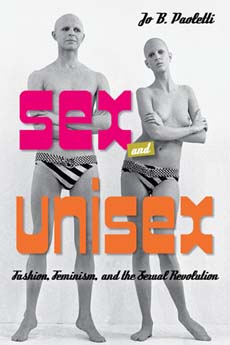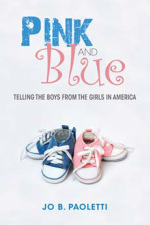“What’s the problem with pink, anyway?” griped Yael Kohen in New York. Then, building upon Kohen’s piece, Slate senior editor Allison Benedikt demanded: ”What is it with you moms of girls? I have never met a single one of you who isn’t tortured about pink and princesses.”
Over at Pigtail Palls, Melissa Wardy lays out the counterargument:
There is a difference between being anti-pink and being anti-limitation, and as someone who educates thousands of parents every week on this issue I feel most parents fall into the second camp. We are not anti-pink. We are anti-limitation.
Anyone who studies -- and critiques -- gender distinctions can expect to be accused of one of two things:
- trying to disrupt the "natural" order of things, by which is meant binary, biology-is-destiny ideology. (Men and women are opposites or complements, there are only those two categories, and the corresponding cultural coding of masculinity and femininity is the natural outcome of these binary biological differences.)
- making a mountain out of a molehill
Countering the first assertion is a matter of evidence, both scientific and cultural. Biological sex is not either-or. There are as many variations on gender codes as there are cultures in human history. Of course, like other modern controversies, from climate change to vaccination, evidence can not sway the committed unbeliever. My research is aimed at the persuadable reader, and at the embattled advocates for gender equality and acceptance who need the ammunition.
The second accusation is more problematic. People who espouse this view often claim to embrace a more inclusive and accepting view of gender variations. They want their boys to be free to be artists and their girls to be engineers. But gosh-darn-it all this fuss about pink is so TRIVIAL!
Here is where I will take the liberty of substituting "pinkification" for "pink", because it isn't about the color pink itself, but about the cultural pattern of offering children a strongly stereotypical version of gender. Pinkification is what I will call this pattern. Here's why it isn't trivial:
- The pinkification of culture has a history, and it is recent.
- Pinkification is not just the use of pink to denote "girls' things", but the narrowing of choices to exclude neutral options, which reinforces the fore-mentioned (incorrect) binary
- Pinkification works because it targets children at a developmentally vulnerable stage.
- Pinkification teaches children stereotypes that limit the way they perceive themselves and others.
- Pinkification excludes and stigmatizes children who do not identify with gender stereotypes.


